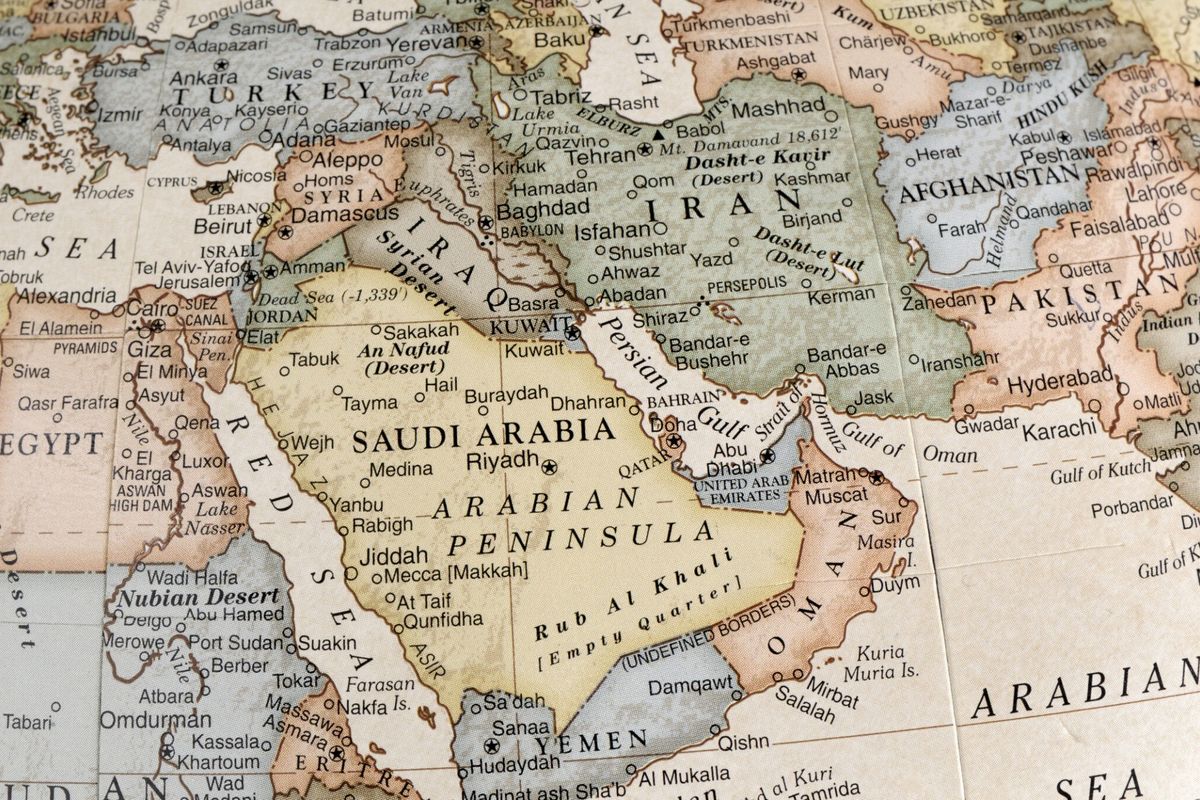More mixed signals have emerged on the rift between Qatar and some of its Arab neighbors, as a new report citing U.S. intelligence officials says the United Arab Emirates orchestrated the hacking of Qatari websites to post false information that spurred the region’s diplomatic crisis.
Qatar has said its state news and social media websites were hacked and that fabricated quotes attributed to Qatar’s emir, Sheikh Tamim Bin Hamad al-Thani, were posted that helped lead to the dispute and the diplomatic and economic blockade of the country by Saudi Arabia, UAE, Bahrain, Egypt and others. The Washington Post reported on Sunday that “officials became aware last week that newly analyzed information gathered by U.S. intelligence agencies confirmed that on May 23, senior members of the UAE government discussed the plan and its implementation.”
“The officials said it remains unclear whether the UAE carried out the hacks itself or contracted to have them done. The false reports said that the emir, among other things, had called Iran an ‘Islamic power’ and praised Hamas,” according to the Post.
Ambassador James Jeffrey, former U.S. Ambassador to Iraq and Turkey, said what is notable about this recent development is that U.S. government sources were reported to have leaked the information. This “strongly suggests” the depths of U.S. concern at what the UAE and Saudi Arabia have done, he said.
The Gulf nations are U.S. allies and members of the U.S.-led coalition against ISIS, and Qatar’s al-Udeid Air Base is home to thousands of U.S. service members. On June 5, just two weeks after President Donald Trump delivered a speech in Riyadh to the Arab Islamic American Summit calling Qatar a “a crucial strategic partner,” Saudi Arabia and the other Arab states announced they were cutting diplomatic relations with Qatar and imposing a sweeping blockade of the country. Qatar was also accused of providing financial support to terrorists.
Kristian Coates Ulrichsen, Fellow for the Middle East at Rice University's Baker Institute for Public Policy, said he read this report as possibly “the result of one part of the U.S. machinery of government taking action to try and make sure that other parts, such as the White House, don't jeopardize core U.S. political, commercial, and strategic interests in the Gulf, including in Qatar.”
“The impression that the White House has been at odds with the State Department and the Pentagon has hampered U.S. policy responses to the Qatar crisis,” he noted. “If the allegations of UAE involvement in the hacking of Qatari websites is true, then the leak of this information could be a shot across the bows not only of the anti-Qatar quartet, but also the White House by elements of the security and defense community in D.C.”
Secretary of State Rex Tillerson is back from a trip last week where he shuttled among the region’s capitals in an effort to make headway to resolve the conflict. He signed a counterterrorism agreement with Qatar while abroad and has called for all sides to negotiate. President Donald Trump, meanwhile, has taken a critical stance on Qatar, accusing the country of funding terrorism at a “high level” a few days after the diplomatic rift opened.
Trump said in an interview last week "Rex is doing a terrific job, but he and I had a little bit of a difference only in terms of tone." The president also raised the issue of the air base, saying that “if we ever had to leave, we would have 10 countries willing to build us another one, believe me, and they will pay for it.” Secretary of Defense James Mattis, meanwhile, said “there's no need to look at alternatives" for the Qatar air base.
The UAE has denied the hacking allegations, with Minister of State for Foreign Affairs Anwar Gargash saying Monday that “the Washington Post story is not true.”
“It is purely wrong. You will see in the next few days the story will die,” he said at an event at London’s Chatham House, according to The Guardian.
Ambassador Jeffrey said the hacking report suggests that Tillerson and others may be worried about Saudi Arabia in particular “trying to ‘play’ Trump or exploit his affinity for them for their, not our, purposes.”
“Finally, this shows that despite a huge roster of ‘partners’ in the Middle East, ‘with us’ in the anti-terror anti-Iran front, how divided they are and how needed is U.S. direct involvement and leadership,” Jeffrey wrote in an email.
Coates Ulrichsen said if the allegations about the UAE orchestrating the hack are correct, it would not be a surprise given it would be consistent with past actions associated with actors close to the country. Jeffrey, a fellow at the Washington Institute for Near East Policy, said the Institute’s take is that all the Gulf states have significant cyber defense and offense capabilities.
The major takeaway from these allegations, if true, is that the UAE “has been following a very assertive set of regional policies that have shown how Emirati leaders are willing to prioritize their own interests, such as they are perceived, to achieve a very specific set of aims in fragile states still coming to terms with the political transitions set in motion by the Arab Spring in 2011,” according to Coates Ulrichsen.
“What is most significant about the Qatar standoff is that the UAE is trying to swing the U.S. government in support of its version of regional political transition by using the language of fighting all forms of radical Islamism that it knows will resonate with the current government in D.C.,” he added.
As Jeffrey and the Institute’s Simon Henderson wrote recently in The Cipher Brief, “If neither the Saudis and Emiratis, nor the Qataris back down, and the United States continues to vacillate between the president’s tilt towards Riyadh and his senior officials’ concerns with Saudi action and thus not find a way to mediate this crisis to a compromise stand-down, it could metastasize.”
Mackenzie Weinger is a national security reporter at The Cipher Brief. Follow her on Twitter @mweinger.













